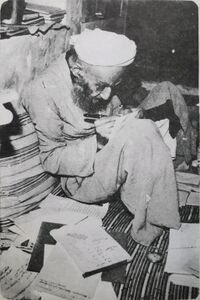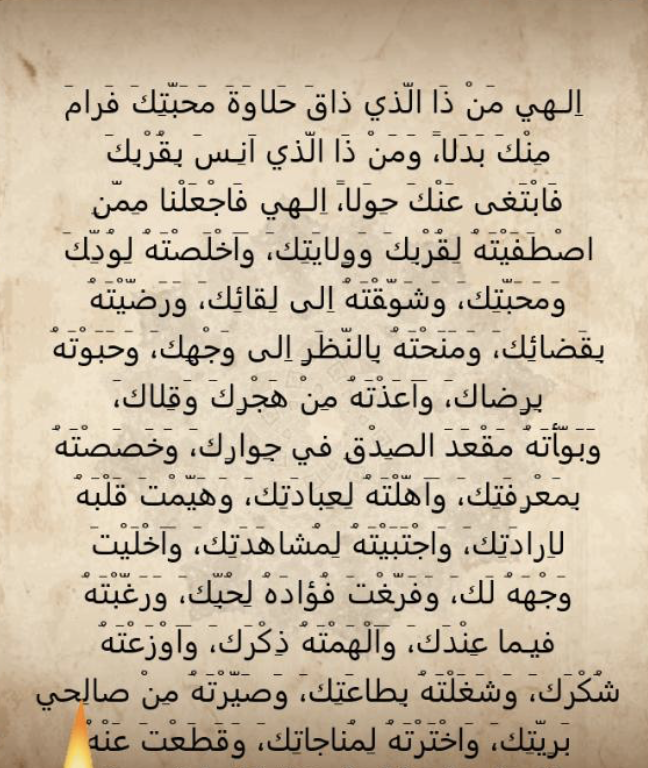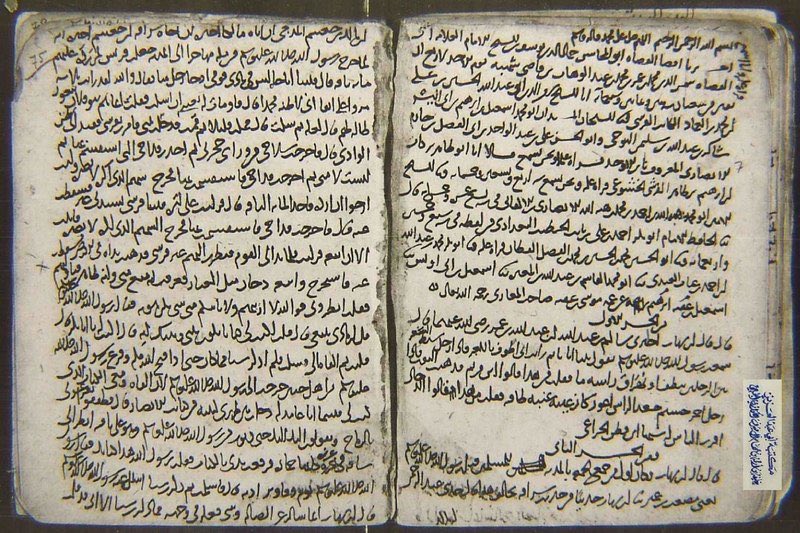
Assistant Professor in Islamic Philosophy & History, Leiden University| Series Editor, Islamic Thought & History| Editor in Chief, Taḥqīq Journal, Brill.
3 subscribers
How to get URL link on X (Twitter) App


https://twitter.com/culturaltutor/status/1755345773074501687Did the House of Wisdom really exist? If so, what was its function? Two historiographical approaches can be discerned in modern scholarship: maximalist & minimalist positions. The maximalists offer imaginary reconstructions on basis of one-line references in sources 2/


 3/Ibn Shādhān al-Qummī (d. 1029), Shiʿi jurist and ḥadīth scholar, recounts one hundred virtues (فضائل) of ʿAlī in the ḥadīth corpus, among them: “If trees were pens, oceans ink, the jinn as count, and humans as scribes; not even then could the virtues of ʿAlī be exhausted".
3/Ibn Shādhān al-Qummī (d. 1029), Shiʿi jurist and ḥadīth scholar, recounts one hundred virtues (فضائل) of ʿAlī in the ḥadīth corpus, among them: “If trees were pens, oceans ink, the jinn as count, and humans as scribes; not even then could the virtues of ʿAlī be exhausted". 


 Unknown to many is that Aqa Bozorg collaborated with another two Shi’i scholars, Hasan Sadr & M Husayn Kashif Ghita. Together they responded to claim of Lebanese historian, Jujri Zaydan (d. 1914) that Shi’i authors played insignificant role in making of Islamic civilisation 2/
Unknown to many is that Aqa Bozorg collaborated with another two Shi’i scholars, Hasan Sadr & M Husayn Kashif Ghita. Together they responded to claim of Lebanese historian, Jujri Zaydan (d. 1914) that Shi’i authors played insignificant role in making of Islamic civilisation 2/ 




 The Satanic Verses incident is known as the Story of the Cranes (قصة الغرانيق) in the Islamic tradition. It narrates the occasion when the Prophet Muhammad (died 632 CE) mistook the whispers of Satan for divine revelation. 2/
The Satanic Verses incident is known as the Story of the Cranes (قصة الغرانيق) in the Islamic tradition. It narrates the occasion when the Prophet Muhammad (died 632 CE) mistook the whispers of Satan for divine revelation. 2/

 Kashifi was a prolific author & prominent intellectual of the Timurid period. Described as a polymath (ذو فنون) by contemporaries, he authored works, in Persian, on quranic exegesis (المواهب العالية), hadith, occultism, poetry & rhetoric, fiction & storytelling, & Hanafi fiqh. 2/
Kashifi was a prolific author & prominent intellectual of the Timurid period. Described as a polymath (ذو فنون) by contemporaries, he authored works, in Persian, on quranic exegesis (المواهب العالية), hadith, occultism, poetry & rhetoric, fiction & storytelling, & Hanafi fiqh. 2/ 

 2/The "investiture" of ʿAlī according to the Shiʿi sources took place on 18 Dhu l-Ḥijjah in 10 H (= March 632 AD) at a pond between Mecca and Medina, known as Ghadīr Khumm. What do they sources say happened exactly?
2/The "investiture" of ʿAlī according to the Shiʿi sources took place on 18 Dhu l-Ḥijjah in 10 H (= March 632 AD) at a pond between Mecca and Medina, known as Ghadīr Khumm. What do they sources say happened exactly? 

 Identifying a good stallion is key. Here the diagram offers tips on understanding the different bodily parts of a horse (MS 4689 Istanbul) 2/
Identifying a good stallion is key. Here the diagram offers tips on understanding the different bodily parts of a horse (MS 4689 Istanbul) 2/ 

 The recently published (unicum manuscript) heresiography by Khushaysh b. Aṣram al-Nasāʾī was most probably written circa 840-860 CE. It bears the title الاستقامة في السنة والرد على أهل البدع والأهواء. h 2/
The recently published (unicum manuscript) heresiography by Khushaysh b. Aṣram al-Nasāʾī was most probably written circa 840-860 CE. It bears the title الاستقامة في السنة والرد على أهل البدع والأهواء. h 2/ 


 The content is quite brilliant. It reports the supplicatory prayers of ʿAlī b. al-Ḥusayn to mark different occasions and auspicious moments in the religious calendar, such as the whispered prayer of the lovers (see below). 2/
The content is quite brilliant. It reports the supplicatory prayers of ʿAlī b. al-Ḥusayn to mark different occasions and auspicious moments in the religious calendar, such as the whispered prayer of the lovers (see below). 2/ 


https://twitter.com/OknDA1osdQmhBQJ/status/1441356589747769350Before the discovery, we knew that the work survives in one extant manuscript held at Berlin ("fragment" Ahwardt 1552), published and translated into German by Eduard Sachau in 1904. 2/
https://twitter.com/abhistoria/status/14031398247107911732/One or two Twitter types actually read my thread as stating, 'one must know German to do ḥadīth studies.' Another managed to misquote a tweet embedded in the Twitter quote feature! I mean, the original tweet was literally below.

 The present-day city of Najaf lies six-miles away from the Islamic garrison town of Kufa and the ancient Christian Lakhmid town of al-Ḥīra. Najaf is located on an elevated plateau near the Sea of Najaf (بحر النجف). The term Najaf describes "a hill beyond the reach of water". 2/
The present-day city of Najaf lies six-miles away from the Islamic garrison town of Kufa and the ancient Christian Lakhmid town of al-Ḥīra. Najaf is located on an elevated plateau near the Sea of Najaf (بحر النجف). The term Najaf describes "a hill beyond the reach of water". 2/ 